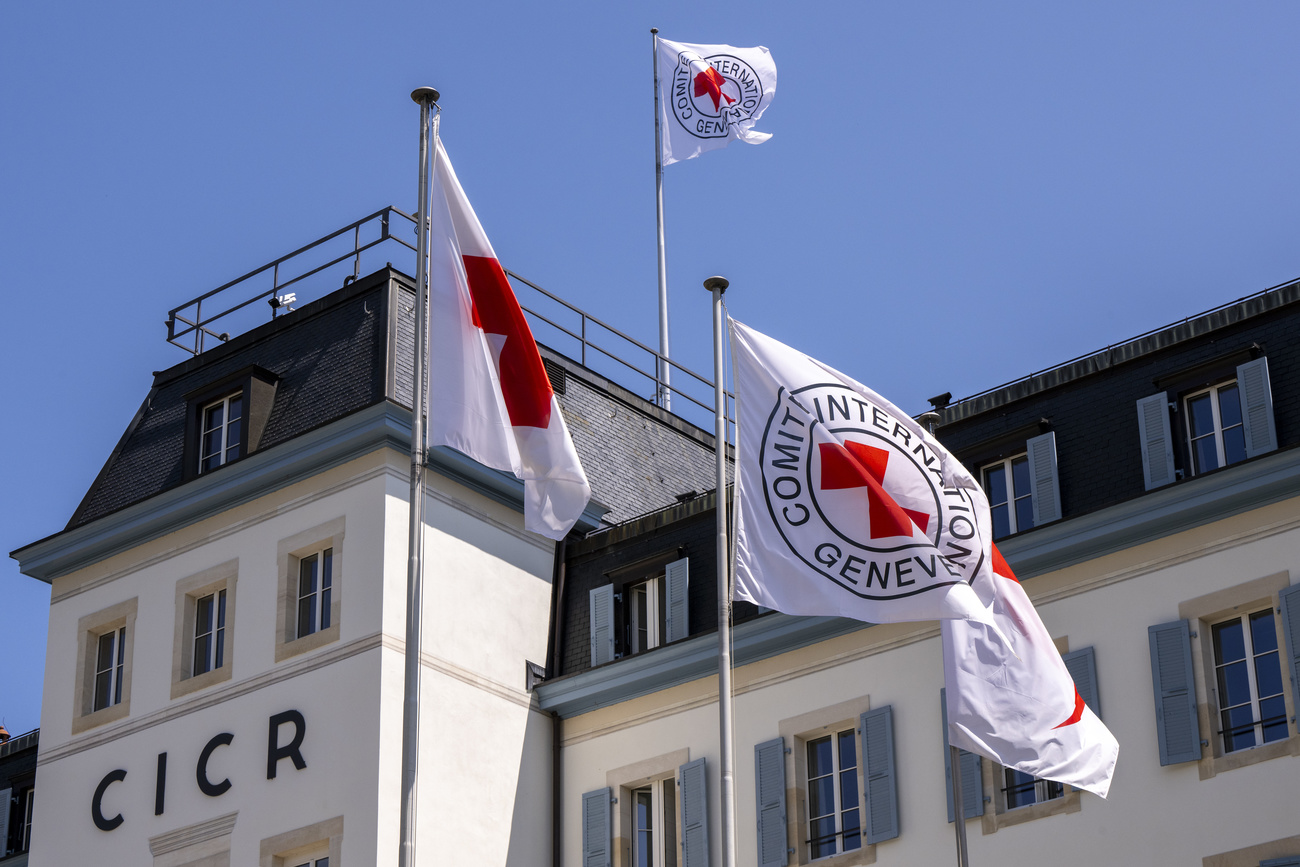
In Geneva, Israeli foreign minister calls for more action on Gaza hostages

Israel’s foreign minister Eli Cohen has called on the Red Cross to do more to establish contact with hostages abducted in the Gaza Strip.
Cohen made his remarks on Tuesday in Geneva, where he held talks with several relatives at the International Committee of the Red Cross (ICRC) and UN organisations.
“To date, no one has seen the hostages,” said Cohen. “We have no signs of life.” The ICRC must at least ensure that relatives receive a sign of life from those who have been abducted and that they are provided with medication.
Militants from Hamas and other extremist Palestinian organisations killed around 1,200 people and abducted around 240 people during an attack on Israel on October 7.
+ All the latest news on the Israeli-Palestinian war
Visiting prisoners is one of the ICRC’s core tasks. It is supposed to look after the welfare of prisoners in conflicts, but is dependent on the consent of the parties to the conflict. In its dialogue with Hamas, the ICRC has so far demanded access to the hostages in the Gaza Strip, but to no avail.
The relatives described harrowing details of how their family members were abducted during the terrorist attack. They included the daughter of a 79-year-old woman and the sister of a man who was abducted with his wife and two small children. The relatives showed audio and video recordings of the terrorist attack in which their family members could be seen or heard.
The plight of the civilian population in the Gaza Strip was caused by Hamas, said Israeli Health Minister Uriel Menachem Buso. He accused Hamas of withholding fuel for generators from hospitals in order to use it itself for attacks on Israel.
According to the latest figures from a Hamas-controlled administration, 11,500 Palestinians have been killed in the Gaza Strip since the start of the war. Some 29,000 have been injured since then, an information office of the administration announced on Tuesday. Israel avoids civilian casualties wherever possible, said Cohen. But he also said that “we will continue this war until Hamas is eliminated and until we have all our hostages back.”
This news story has been written and carefully fact-checked by an external editorial team. At SWI swissinfo.ch we select the most relevant news for an international audience and use automatic translation tools such as DeepL to translate it into English. Providing you with automatically translated news gives us the time to write more in-depth articles. You can find them here.
If you want to know more about how we work, have a look here, and if you have feedback on this news story please write to english@swissinfo.ch.

In compliance with the JTI standards
More: SWI swissinfo.ch certified by the Journalism Trust Initiative




























You can find an overview of ongoing debates with our journalists here . Please join us!
If you want to start a conversation about a topic raised in this article or want to report factual errors, email us at english@swissinfo.ch.